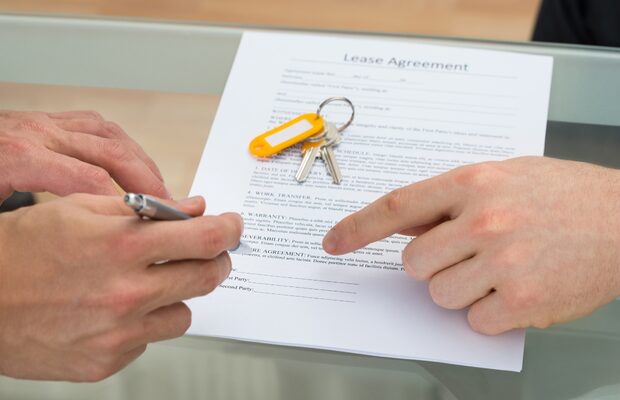Spotting “offers over” can spark both excitement and uncertainty – especially if it’s a home you love. It signals that the seller is inviting a bid starting from a certain price, rather than listing a fixed figure. But how do you pitch your offer just right without overlaying or losing out to a higher bidder
If you’re buying a house and have come across listings marked “offers over”, this guide is here to help. We’ll explain the offers over meaning, how to approach these types of listings in a competitive market, and what to consider when deciding how much to offer.
Related: Can you see other offers on a home?
What does “offers over” actually mean?
The phrase “offers over” is used by sellers and estate agents to indicate that the property will not be sold for the price listed, but for something above it. It sets a minimum price expectation, often used when the property is expected to generate strong interest.
It’s different from “asking price” or “guide price”, which are more flexible and open to negotiation. When you see offers over £300,000, for instance, it typically means the seller is expecting buyers to submit bids starting at that figure and ideally above it.
This approach is particularly common in competitive markets or where properties are in high demand, such as family homes in popular school catchment areas or well-located fixer-uppers.
Why do sellers use “offers over”?
There are a few key reasons why a seller or estate agent might opt for this pricing method:
- To create a sense of urgency – It encourages interested buyers to act quickly and submit strong offers.
- To spark competition – Multiple bids can push the final sale price higher.
- To reflect high demand – In hot markets, the asking price may be set deliberately low to attract more attention.
While it can be frustrating as a buyer, the strategy often works in favour of the seller, especially if several people are keen to secure the same property.
Buying a house: offers over – how much should you offer?
This is where it gets tricky. When you’re buying a home listed as offers over, how do you know what’s reasonable?
There’s no hard rule, but here are a few tips to guide your decision:
- Do your research: Look at recent sales in the same area. What did similar homes go for? This gives you a realistic picture of what the seller might expect.
- Consider the market: In a fast-paced market with low supply, you may need to go 5–10% (or more) above the listed price to be competitive.
- Factor in the home report or valuation (especially in Scotland): In some regions, particularly Scotland, you’ll often see offers over the home report value. Bidding too far above it could leave you vulnerable if the mortgage lender doesn’t agree with the price.
- Know your ceiling: Decide in advance how high you’re willing or able to go. That way, you can move fast without regret.
How to navigate “offers over” in a competitive market
If you’re buying in a popular area, chances are you’ll face stiff competition. Here’s how to improve your chances while staying in control of your budget:
- Get a mortgage agreement in principle: Being financially prepared makes you more attractive to sellers and speeds up the process once your offer is accepted.
- Make your best offer first: Especially if you’re asked for a “best and final offer,” you may only get one shot. Consider what the property is worth to you and go in confidently.
- Don’t assume it’s all about money: In some cases, sellers value flexibility like being chain-free or able to move quickly, just as much as a higher price.
- Ask your agent for guidance: A good estate agent knows the local market inside and out. They can advise you on what similar homes are going for and how competitive the property really is.
Related: What happens on completion day? A buyer’s guide
Best and final offer: how much over asking price is enough?
If you’re asked to submit your best and final offer, the pressure can feel intense. You want to be competitive, but you also don’t want to overpay unnecessarily.
In general, buyers tend to offer anywhere from 5% to 15% over the asking price, depending on local demand. That said, it really comes down to what you can afford and how much you want the property.
To avoid any buyers’ remorse, ask yourself: If someone else gets it for £5,000 more, will I be disappointed? If the answer is yes – and you can comfortably stretch your budget, it might be worth adding a little extra.
Making a confident offer when it counts
Understanding the offers over meaning is key to making smart choices in today’s property market. These types of listings are designed to create urgency and competition, but with the right approach, they don’t have to be daunting.
Whether you’re buying your first home or moving up the ladder, it’s important to stay realistic, do your homework, and know your financial limits. That way, you can make a strong offer without stepping out of your comfort zone.
Looking to make your next move with confidence? Our experienced team at Ellis & Co can guide you through every step – from understanding house offers over listings to making a competitive, well-judged bid.
Get in touch with your local Ellis & Co branch to discuss your property goals today.








